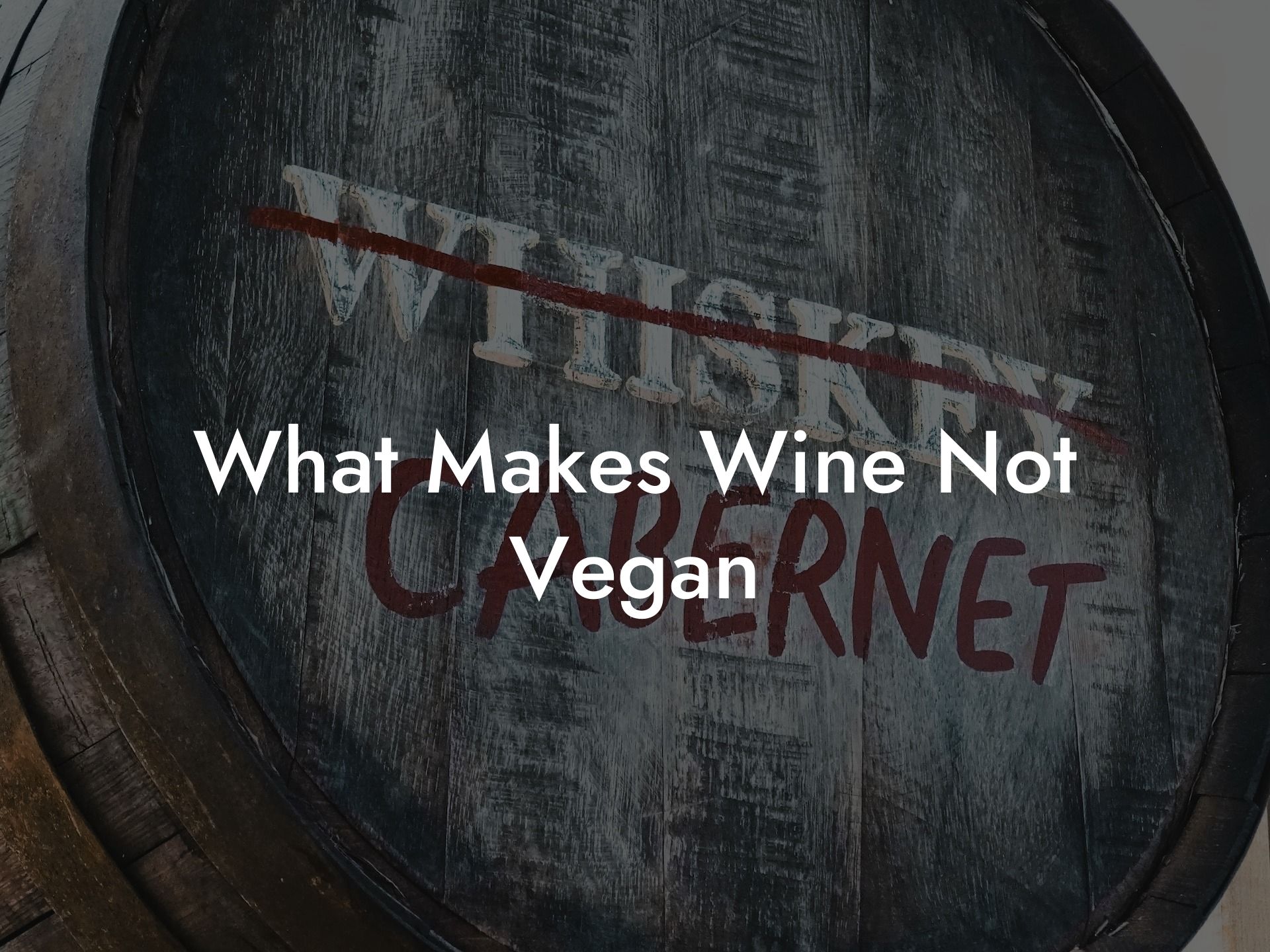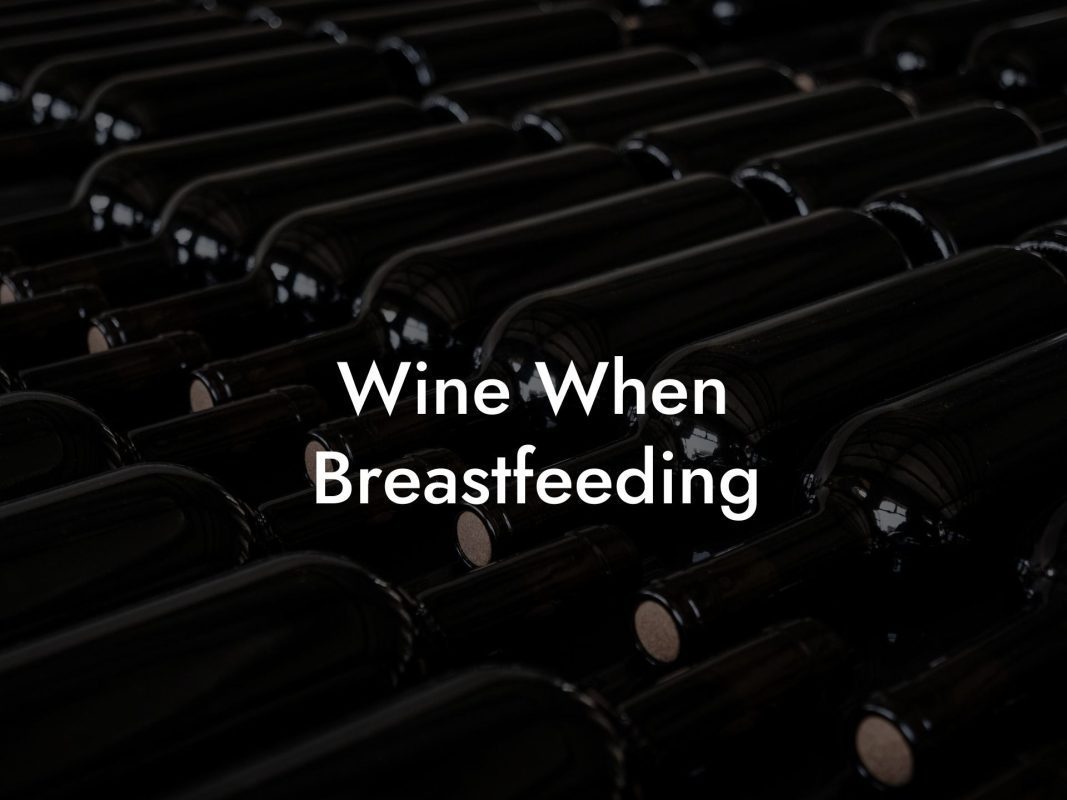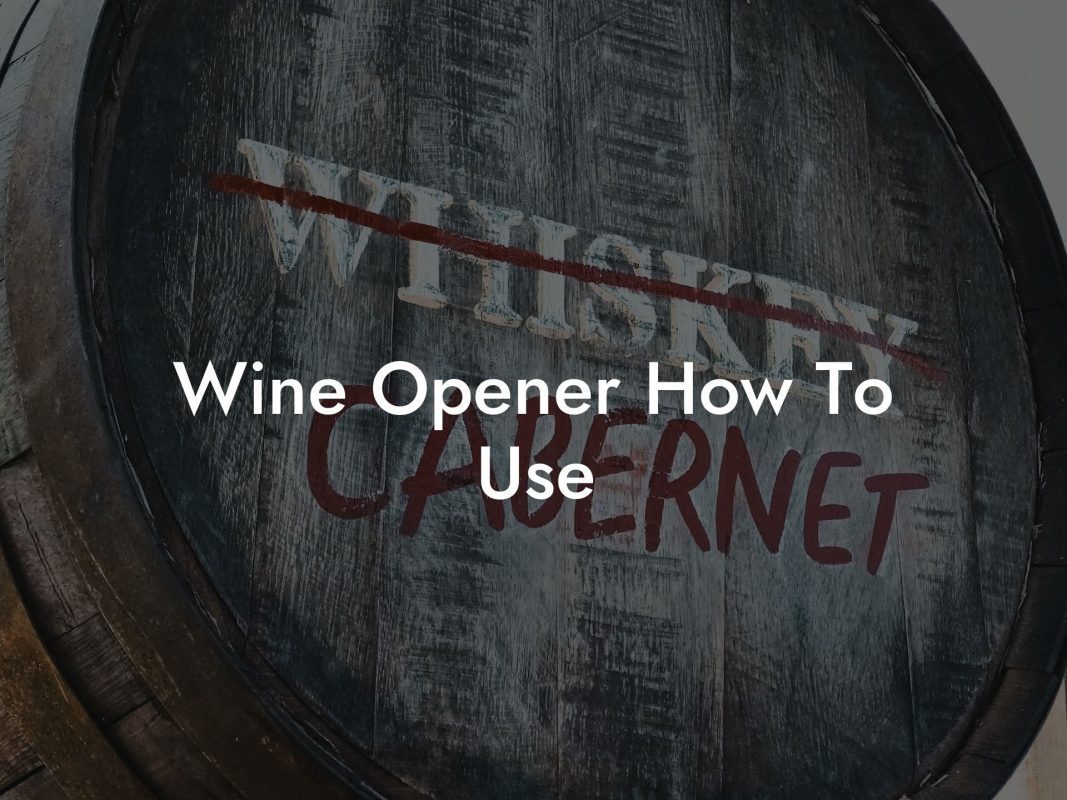Are you a wine lover who's also passionate about embracing a vegan lifestyle? You might be surprised to learn that not all wines are vegan-friendly. But fear not, as Black Wine Club is here to enlighten and engage you with a deep dive into what exactly makes some wines incompatible with veganism and how to choose and enjoy the perfect vegan wine selections during our exciting wine tastings and electronic music events!
What Makes Wine Not Vegan Table of Contents
The Hidden Ingredients: What Makes Wine Not Vegan?
The Hidden Ingredients: What Makes Wine Not Vegan?
Wine is primarily composed of fermented grapes, so one would think that it should naturally qualify as vegan. However, the process of making wine is where things get tricky. During production, wines often undergo a clarification process called fining, which is used to remove unwanted substances that can cause cloudiness, off-flavors, or off-odors. This is where animal-derived products typically come into play.
Fining Agents: Where Animal Products Lurk
Animal-based fining agents have long been used in the wine industry because of their efficacy in binding to and removing suspended particles, resulting in a clearer, more stable wine. Some common non-vegan fining agents are:
Do You Want to Win a Free Bottle of Wine?
Don't miss out on the opportunity to win a free bottle of wine every week.
Enter our weekly prize draw today!
- Casein: A protein derived from milk, used predominantly in white wine production.
- Albumin: An egg white protein, frequently used in red wine production to soften tannins.
- Gelatin: A protein derived from animal bones or hides, used in both red and white wines.
- Isinglass: A collagen-like substance obtained from fish bladders, commonly used in white wines.
- Chitin: A fiber found in crustacean shells, sometimes used in white wine production.
The use of these animal-based fining agents means that the processed wine can contain trace amounts of these products, making them not truly vegan.
Vegan-Friendly Alternatives: Let The Wine Flow!
Fortunately, many winemakers are now embracing ethically-conscious alternatives to animal-derived fining agents, making it easier than ever for vegans to imbibe their favorite libations without compromise. Some popular vegan-friendly fining agents include:
- Bentonite: A clay mineral with excellent protein-removal properties, making it a popular choice for both red and white wines.
- Activated Carbon: An effective absorbent material used to remove various impurities in wine production.
- Silica Gel: A microporous structure that binds to various particles, helping to clarify wines.
- Plant-based Casein: A vegan alternative to traditional casein, derived from plants such as peas or potatoes.
By using these alternative fining agents, winemakers can create vegan-friendly wines without sacrificing quality or taste.
How to Identify and Choose Vegan Wines
With the rise in popularity of veganism, many winemakers and retailers are becoming increasingly transparent about their production methods, making it easier for consumers to make informed choices about their purchases. Here are some tips to help you identify vegan wines:
- Look for wine labels that explicitly state the wine is vegan, or for certifications such as the Vegan Society trademark.
- Visit the winery or producer's website to gather information about their production methods and use of fining agents.
- Opt for organic or biodynamic wines, which often use minimal intervention techniques in production and may be more likely to be vegan-friendly.
- Consult resources such as smartphone apps or online directories that list and review vegan wines.
What Makes Wine Not Vegan Example:
Imagine you're ready to attend a Black Wine Club wine tasting event, and you want to ensure that you're selecting a vegan wine option. Using the tips we provided above, you could:
1. Keep an eye out for wine bottles with a vegan label or certification.
2. Visit the websites of the wineries featured at the event to research their production methods.
3. Look for biodynamic or organic wines, as they often align closely with vegan values.
4. Use resources like smartphone apps or online guides to select a vegan wine that suits your specific tastes and preferences.
Now that you've got a better understanding of what makes some wines not vegan and how to identify the perfect vegan-friendly wine options, you're all set to enjoy Black Wine Club's fantastic wine tastings and electronic music events without worrying about compromising your lifestyle choices. Don't forget to share this article with fellow wine-loving vegans and explore our other blog posts for even more insights on how to make the most of your wine experience with Black Wine Club. Cheers!
Do You Want to Win a Free Bottle of Wine?
Don't miss out on the opportunity to win a free bottle of wine every week.
Enter our weekly prize draw today!












